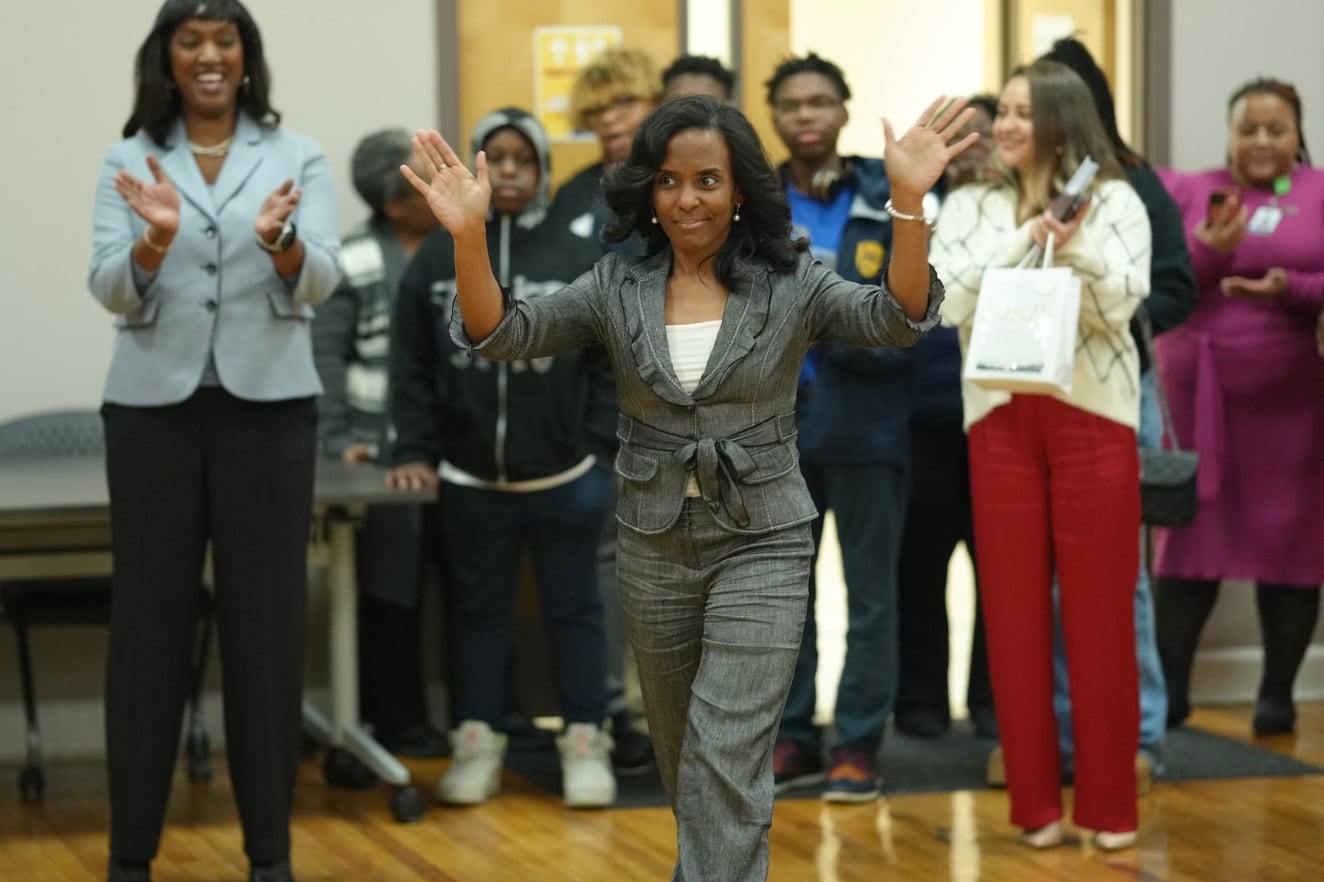Marie Feagins is the school board’s choice to be the next superintendent of Memphis-Shelby County Schools and the first outside leader to direct Tennessee’s largest school district since it was created through a merger a decade ago.
In a meeting Friday, school board members ended the Memphis superintendent search with a vote to select Feagins for the role. With successful contract negotiations, Feagins will join the district from her current position as chief of leadership and high schools for Detroit Public Schools Community District.
The board’s search went well into a second year and included no shortage of twists, turns, and disputes. Ultimately, the board rebooted the application process last fall and narrowed the finalist pool to three out-of-state candidates who returned to Memphis earlier this month for a final round of public interviews.
As the new superintendent, Feagins will oversee a district of 100,000 students at a pivotal time. Students have made some progress since the pandemic but have yet to totally rebound to scores that have historically lagged behind state averages. And, like other districts, Memphis is projecting a large budget gap as federal pandemic relief funds expire, leaving leaders to decide which academic programs and personnel they can afford to cut or keep. Plus, the current administration has launched a major facilities overhaul that could involve school consolidations and closures.
The new leader will also have to deal with direct challenges to local control from state leaders and lawmakers, who have stepped up the pressure on public school systems. A new proposal would specifically target Memphis by expanding the school board with additional members appointed by state officials.
Eleventh-hour letters from Rep. Mark White, the Memphis Republican who plans to sponsor the proposal, as well as from Shelby County Commission Chair Miska Clay-Bibbs, also a former school board chair, urged the Memphis board to take no action Friday.
Said MSCS board Chair Althea Greene: “While we are interested in hearing from state legislators and other elected and business leaders, the time for critical input and action has passed.”
Board member Michelle McKissack nominated Feagins as a “visionary changemaker” the district needs.
After two rounds of voting, Feagins eventually earned votes from board members Michelle McKissack, Chair Althea Greene, Stephanie Love, Kevin Woods, Mauricio Calvo, Keith Williams, Frank Johnson, Amber Huett-Garcia, and Vice Chair Joyce Dorse-Coleman.
Feagins was in competition with Yolonda Brown, chief academic officer in Atlanta Public Schools and Cheryl Proctor, deputy superintendent of instruction and school communities for Portland Public Schools in Oregon. The Memphis board worked with outside search firm Hazard, Young, Attea and Associates to solicit applications.
Feagins is expected to start by July 1.
She will follow in the steps of interim Superintendent Toni Williams, whose contract allows her to retain a role with the district through the next year. Williams, the district’s former finance chief, has had an active interim tenure, negotiating plans and financing for new school buildings, embarking on a plan for all of the district’s facilities, and reorganizing the district’s procurement and finance departments.
In August 2022, Williams was the single nominee for interim leader while the board committed to a national search for a successor to former Superintendent Joris Ray, who agreed to resign from the post in a cloud of scandal.
What to know about new Memphis school superintendent Marie Feagins
Feagins works in Detroit’s public school district with high school academic programming, and acts as a liaison for the district with the mayor’s office and state education department, she wrote in her application. Before coming to Detroit, she was a principal in Cleveland, and started her education career in Alabama.
“The right leader at the right place at the right time changes everything,” she told MSCS board members in December.
Feagins told board members in February that she increased the number of students who were on track to graduate in Detroit by monitoring data regularly and introducing a competition among schools.
Of managing teachers, she said: “People are okay with being responsible for the things that they can directly contribute to and own … I think that when you tell people what to do, you get robots. And when you empower them, then you get the type of creative leaders that we need in our spaces. And that’s how we get the results that we’re ultimately seeking.”
Feagins explained her approach to leading Memphis public schools like this: “I want people to get to know me first, and so that you know that the heart of the decisions are good, they’re pure, the intent is right. But you also know that I honor that the impact is what is felt most, and is what matters most ... and that’s where the leadership begins.”
Laura Testino covers Memphis-Shelby County Schools for Chalkbeat Tennessee. Reach Laura at LTestino@chalkbeat.org.





